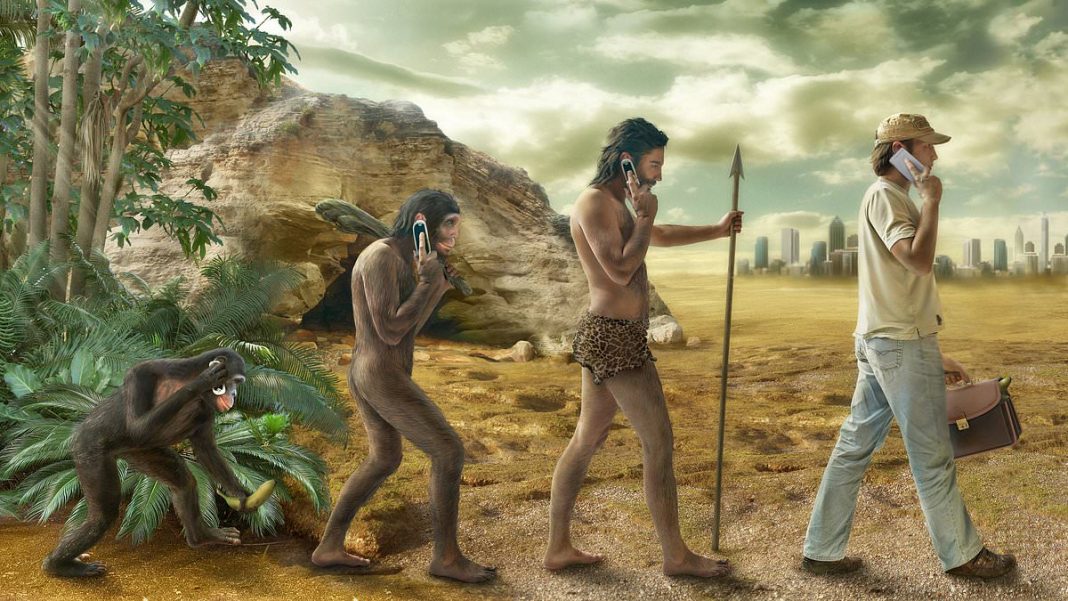Cultural Evolution Outpaces Genetics in Shaping Human Future
A groundbreaking study reveals that your environment and social connections now influence your life outcomes more than your genetic inheritance. University of Maine researchers document what they call a “great evolutionary transition” accelerating in modern societies.
Key Takeaways
- Cultural systems now outweigh genetics in determining life outcomes
- This evolutionary transition has accelerated dramatically in modern times
- Group cooperation enables solutions to extinction-level threats
- Cultural evolution operates hundreds to thousands of times faster than genetic evolution
The Great Evolutionary Transition
Timothy Waring, associate professor of economics and sustainability at the University of Maine, explains that cultural learning and innovation within societies increasingly shape individual futures.
“Ask yourself this: What matters more for your personal life outcomes, the genes you are born with, or the country where you live?” Waring told the Daily Mail. “Today, your well-being is determined less and less by your personal biology and more and more by the cultural systems that surround you – your community, your nation, your technologies.”
While this phenomenon has been unfolding for 2.5 million years since humans diverged from primates, the process is now accelerating faster than ever.
ETII: A New Framework
Waring and fellow researcher Zachary Wood developed the Evolutionary Transition in Inheritance and Individuality (ETII) concept to study how culture transforms societies into “superorganisms.”
Traditional genetic evolution can take thousands of years to spread changes like lactose tolerance through populations. Cultural evolution, however, operates at dramatically faster speeds through shared knowledge and technologies.
Modern medicine, hospitals, and hygiene practices have increased human lifespan far more than recent genetic adaptations. These advances represent cultural systems that benefit entire groups simultaneously.
The Power of Collective Knowledge
Critical to this progress is the recognition that no individual can achieve these advances alone.
“No one person can create a computer, or become a doctor with modern scientific knowledge of health,” Waring explained. “These things require vast groups of experts carefully organized to achieve precision and accuracy in helping us live as individuals.”
This collective approach enables humanity to tackle existential threats like pandemics and environmental disasters more effectively than genetic evolution ever could.
Evidence and Implications
The researchers reached their conclusions by reviewing past studies, applying mathematical models comparing cultural and genetic change paces, and examining historical milestones like the rise of agriculture.
“Cultural evolution eats genetic evolution for breakfast,” Wood stated in a university release. “It’s not even close.”
Vaccines and public health measures helped humans adapt to COVID-19 much faster than genetic resistance could have evolved, saving millions of lives in just a few years.
The Double-Edged Sword of Technology
Not all cultural innovations provide evolutionary benefits. Waring notes that smartphone overuse might hinder cultural growth by reducing face-to-face social learning.
“There is nothing special about evolution – it’s not perfect, it’s not always adaptive, it doesn’t always create great outcomes, either,” Waring cautioned.
Understanding this ongoing transition allows society to better navigate technological changes and their evolutionary consequences.







